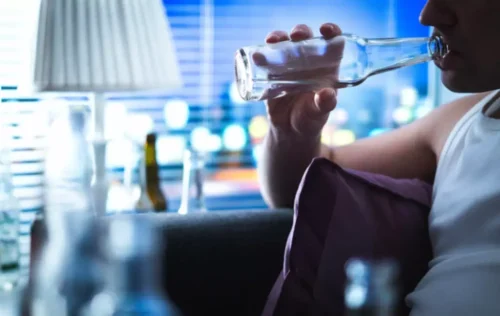
Symptoms may include depression, irritability, anxiety, difficulty sleeping, and exhaustion. Seeking help for these symptoms is imperative for successful recovery 5. Achieving sobriety often results in enhanced job performance. Individuals who are sober typically experience decreased absenteeism and better overall reliability in their work environments. Substance abuse can severely impact productivity and lead to job loss; however, once an individual commits to sobriety, they may find themselves more focused and motivated at work. Many people who achieve sobriety describe a sense of purpose, fulfilling long-held aspirations and feeling accomplished.

Why You Get Sugar Cravings After Quitting Alcohol
The answer is that any couple whose drinking matches or exceeds the limits cited above would do well to consider this option. That is not to say that either partner would qualify for a diagnosis of alcoholism—only that their drinking, on average, falls outside these limits. A treatment center will attempt to verify your health insurance benefits and/or necessary authorizations on your behalf. Please note, this is only a quote of benefits and/or authorization. We cannot guarantee payment or verification eligibility as conveyed by your health https://ecosoberhouse.com/article/whats-the-difference-between-sober-house-and-rehab/ insurance provider will be accurate and complete. Payment of benefits are subject to all terms, conditions, limitations, and exclusions of the member’s contract at time of service.

Contingency Management Techniques for Psychiatrists in Addiction Treatment
Think of all the ways alcohol has negatively impacted your health, well-being, relationships, and overall life. Then recommit to sobriety and remember that it really is all about taking things one day at a time. One of the most immediate and noticeable advantages of sobriety is avoiding hangovers. Awakening revitalized and eager for the oncoming day is a benefit of abstaining from alcohol.
- However, when it has happened, I have to speak up to point out that I didn’t drink and I’m not subsidizing their drinking.
- Think about which friendships will be supportive of your sober life going forward.
- The ability to prioritize self-care is one of the empowering aspects of choosing sobriety.
- You build more self-respect which leads to more self-esteem and confidence.
- If you don’t already have any of these types of people in your life when you stop drinking, you can take steps to find them and cultivate more of these relationships.
Recognize Signs and Warnings of Relapse
But for many people, lingering feelings of anxiety, depression, and general malaise can last weeks, months, or even longer. What naturally happens is that you start wanting to spend more time with the second group of people because they’re healthy for you. You can socialise and communicate with those people in ways that don’t involve alcohol. Start socializing without alcohol by engaging in alternative activities, and conversations and focusing on the present moment. Non-alcoholic drinks are a great way to join in the festivities without compromising your well-being. Alcohol has been marketed to you as a way to become confident, charismatic, and cool.
And if ever there comes a time when temptation feels too strong or loneliness creeps in, don’t hesitate to seek help from professionals like therapists or counselors who specialize in addiction recovery. You can also check out Alcoholics Anonymous for additional support and resources. It may also be helpful to get to know yourself on your own, first. Spending sober time becoming familiar with your body intimately can help you better communicate your needs to someone else when you feel ready for that step. Ask any sober person whether they want to go to a cocktail party or stay in with a pack of La Croix, The Crown, and a bathrobe. I’d bet nine out of 10 of us won’t even answer, and we’ll just laugh because it’s such a ridiculous question.

By exploring these alternatives, individuals can confidently navigate social situations and maintain their commitment to a sober life. On the other hand, moderation may be more suitable for those without a history of alcohol addiction or dependence, allowing them to enjoy the occasional drink without compromising their health. Dealing with intense being sober around drinkers emotions during recovery can be incredibly overwhelming and difficult to manage. These powerful emotional states can put an individual’s recovery at risk, leading them to turn to alcohol as a coping mechanism. Choosing to indulge in de-alcoholized drinks or mocktails may seem like a harmless alternative, but even these seemingly innocent beverages can be triggering for some.
- Some people may find that wearable devices and smartphone apps can support their recovery from alcohol use disorder.
- They often desperately want to do the right thing but are unsure which tack to take.
- Nutrition can play an essential role in reducing the urge to drink, especially in people affected by alcoholism.
- While the 1-year-sober mark is critical to passing, those who do are not suddenly out of the woods.
- Dr. Lenton also suggests that by announcing that we’re quitting drinking, we subconsciously signal to the group that there is something wrong with THEIR drinking.
Accept that you are in a transitional phase, which will take time.

Sobriety can also lead to significant financial improvement. Individuals who prioritize sobriety often begin to allocate their resources more wisely, focusing on essential expenses instead of substance use. As a result, they may find themselves enjoying a more stable financial situation. Fear of losing one’s job or damaging relationships at work often serves as powerful motivators for seeking help. The realization of disappointing colleagues can prompt an individual to reevaluate their choices and prioritize their career 1. Sobriety offers significant benefits related to one’s career and financial standing.

